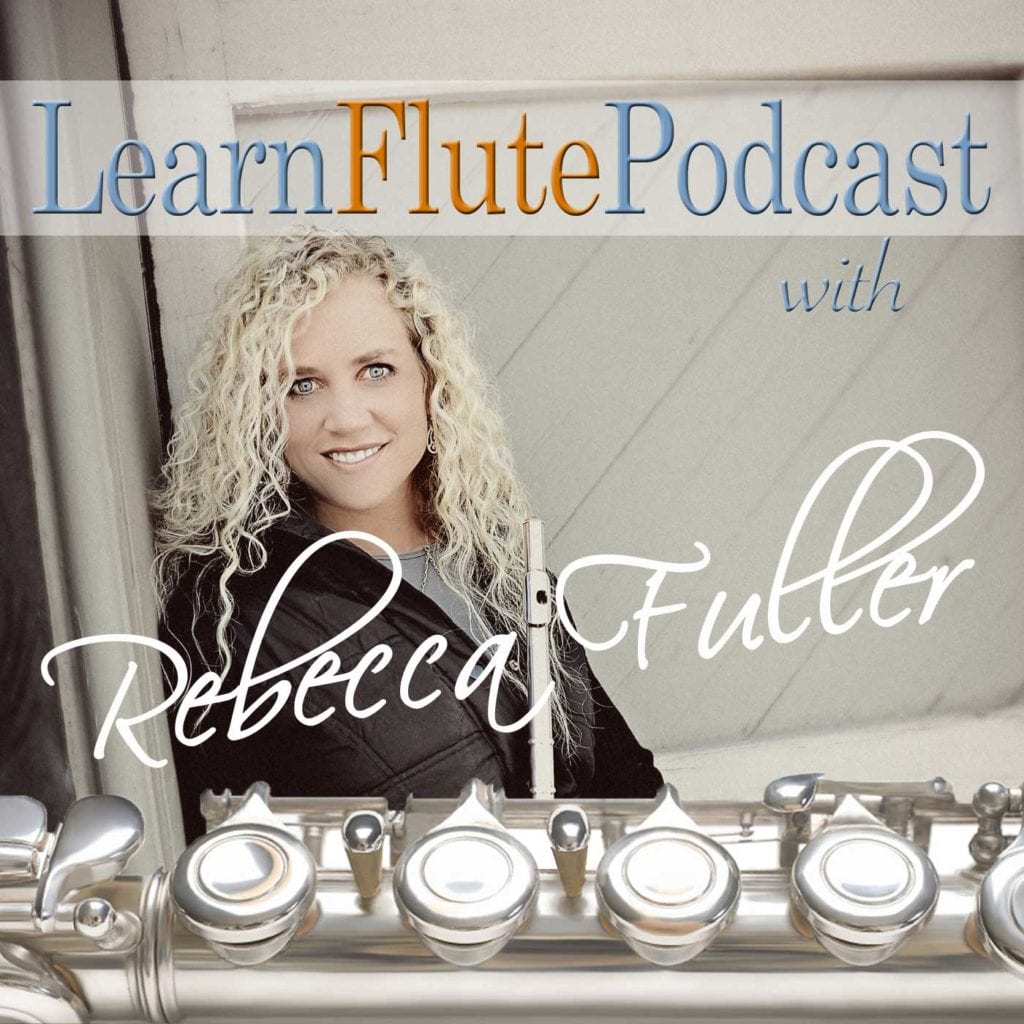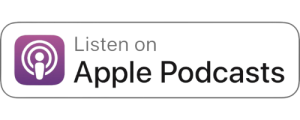Learn Flute Podcast SHOW NOTES:
In this episode, you will learn how to structure your year for the best flute practice sessions.
What this podcast will be all about
- Information on this podcast is supplemental to LearnFluteOnline.com
- How to divide up your year and your goals for the best practice sessions.
- An inside look on how Rebecca stays mentally tough.
- What you can look forward to learning from listening
Learn Flute Podcast 112
Press the Play Button to Listen Now:
Podcast Transcript
I oftentimes get asked how to make better goals in flute playing. You know, the kind of goals that actually are achievable and amount to success. That’s what we want, and that’s what we’re going to talk about today.
Let’s goooo!
Hi, I’m Rebecca Fuller and this Learn Flute Podcast is all about the mindset of becoming a better musician.. Specifically on the flute.
We’re all striving to be better, and when we catch a tip or a hint that makes things easier or even more streamlined is what we like, right?
Here at Learn Flute Online, we are a community of like minded people who not only enjoy music and the instrument flute, but we enjoy getting better – it gives us a kick… which is very needed these days.
Having fun and improving at the same time is our goal, right?
Great.
Well, you’ve come to the right place because we’re all about this here. And today we’re going to get specific in a goal technique that will surprise you in terms of how well it works. I’ve talked about this lightly in past episodes, so this will be fun to go a little bit more in depth today.
Let me explain.
I have been an on and off runner for many years. This means I had to learn some things about the mental side of being an athlete. The reason being that it’s one thing to go outside and run down your driveway to the mailbox to pick up the mail, but it is a whole other baby to learn to run 26 miles without getting drained.
And I’m not just talking about physically. While it’s completely true that the body and muscles have to get fit and trained, for me, I found that running longer distances was more about the mental aspect. What I’m trying to say is that it is very hard to run for longer periods of time without getting super into your head.
Let me describe any given moment while running long distance, in case you’ve never experienced this.

I could be thinking, and usually was thinking a million miles a minute – so I’d think:
Oh my gosh this road needs to be repaved, or that tree sure has gotten taller this year, did they forget to bring their garbage can to the road this morning?
Oh my goodness I think my shoelace on my left shoe is a little tight, or is it that the laces on my right foot are loose? I could analyze that for a very long time. Either way my laces don’t feel the same.
Wow, I’m kind of tired, I wonder how far I’ve run. (looks at watch) oh dear. It’s only a quarter of a mile. What am I going to do and think about for the next 6 miles?
Oh dear, that sounds really far. I don’t think I’ll make it. Wait a minute. I’ve done this before. I made it then. What’s different about today?
And then I’d go on and on analyzing what was going on in my life, or my day that made the possibility of a harder run different.
Have you ever experienced this type of head chatter?
Oh it’s crazy and I know it’s just not me.
My head is chattering all the time.
And guess who is there to listen and talk back? Yah. Just me. Me.
Haha, I want to teach you something today that I learned as I worked on becoming a distance runner. It’s really good for me. Now, no. I’m not an olympic hopeful haha, but I have run quite a few 5K, 10K, half marathons and even yes, I’ve conquered the full marathon distance of 26.2 miles – several times in my adult life.
And I tell you what. I was totally not good at it at first.
My inner chatter would get the best of me over and over on certain days.
But, as I continued to lace up and walk out the door, I became more emotionally resilient. Meaning, that I could overcome the inner chatter with a bit of work. And, I’ll tell you what. I was always glad about it by the end of the run.
There is a sense of accomplishment that comes by doing something that you didn’t think you could at first. This sense of accomplishment is what drives us to become better and try and try again.
So, what does this have to do with our subject today of how to make better goals in flute playing?
Well, it actually has everything to do with it.
In fact, I’d say that what we’re going to talk about today is just as effective in many different subjects in life, and if you tend to have issues talking yourself out of the goals you’ve made, then today is especially for you.
I like to use the word ‘chunking’ quite often, and today will be no different because we’re going to learn to make more consistent strides in your flute playing by chunking, and since we’re at a perfect time of the year to talk about schedules and goals, we get to look at an impressive way to divide our year.
I like to call it our practice year.
This will help us calm the inner chatter that our learning timeline is going to be never-ending… just like a marathon could feel when we run.
Here’s an example, using the running example today. When a seasoned marathoner lines up at the starting line, he’s not focusing on the last steps of the race. Nope, he’s just hoping to get a good start, and to not go out too fast, which can ruin stamina for the end of the race. Nope- he’s just focused on the first mile.
And after the first mile has been run, he’s a little more warmed up and is ready to think about the 5K distance which is about 3 miles. Now, most runners will tell you that it takes about 4 miles to get warmed up and then they’re ready to kind of go into auto-pilot. Then, the goal is to work on enjoying things until the end of the 10K distance.
Now, this is when the race really begins, if you ask me.
10K to a half marathon which is 13 miles is to find out if you really trained. Haha, and I’d say that after that until about mile 18 it’s all the same.
From mile 18 to mile 26, it’s all about inner chatter and emotional resilience you need to work on. It doesn’t matter what the body is doing by then… it’s mind over matter. For sure. But once the finish line is in sight… whoa.. What a wave of emotions. You’ve probably seen runners crying at the finish line all over the news often. It’s a real thing. And I’m definitely one of those crying runners at the end, so proud of myself.
Now how can we take this same idea and apply it to our flute year?
It’s not as physical or even as crazy mental as running… so what can we learn?
Well, I would say it’s the word chunking. It’s a mental tool I’ve used and other professionals for years to help them set their sights on distances that are more achievable sounding at first.
For example, here at Learn Flute Online I give landmark goals inside the modules to help the members here assess their progress. One of the things we do throughout time here is learn all of our major scales for example, in a certain pattern and tempo that fosters not only good technique, but is a complete foundation for everything to come. We make it fun here with cool accompaniments and community challenges.. But, I KNOW that there are some people who have already looked ahead and they see that there are 12 of these different major scales and… they’re not really simple for the untrained fingers at first.
But, guess what? We don’t need to look at all 12 on the first day. It’s like putting our toe at the starting line. We only need to get the first one under our belt first before even worrying about the next one.
I help you chunk your learning into appropriate pieces and in the correct order for technique learning.
And, when it’s done this way, we make it to the scale finish line so much easier, so much faster, and with so much less stress.
Then it’s just like the runners do, and we get to rinse and repeat whilst attempting to be faster and more efficient each time.
Now, chunking is not just for specific skills like scales. I use it in every single module as we dissect skills that are needed for each beautiful piece that we will be learning to play on our flutes. Watch for it as you move through each module. You’ll see the chunking in real time.
Also, the last, and biggest point I wanted to make is that it’s especially fun for our minds to divide our year into pieces. I like to use the seasons because they’re already there for us, and we’re used to them already. January through March is season, or we could call it, quarter one.
April through June is the next one.
July through September is after that and October through December is the last one.. And filled with holiday fun.
I like to take each of these seasons and notice certain themes during them. This helps me with my practice schedule and keeping things fresh in my mind.
January through March is a perfect time to focus on starting new routines and finding what will work best for the schedule of the season. You know, I’m not the same all year round. Are you?
My family often times dictates what times of day I use for my personal education. Perhaps your life is 100% on the same schedule all year round.. But mine isn’t. And this is what keeps it fun and interesting for me.
From January through March for the past twenty five years, I’ve run something called the One Hundred Day Challenge in my flute studio. This is where students take the challenge to play and practice their flute every single day for one hundred days without missing.
The first two years I ran this challenge, I had one student in my studio win. And I was so proud each time! The next year, I had 3 win. I had to shell out some big prizes that year, but what surprised me was that once the rest of the students noticed that three had won the year before, and that more than one person could win, the next year I had seven make it to the end of the hundred days. And, I bet you’ve already guessed it, but yes, by just a few short years later, I had dozens, in fact, eighty percent winning every single year!
Having an intense goal like this with a stopping point in the foreseeable future (in this case, right within the same season right, 100 days ahead), made HUGE differences in the progress of everyone who took the challenge on. I was shocked, actually. Because this was no light thing, and I was proud.
Have you ever tried this?
Well, remembering my analogy of the marathon runner is going to help because the first 10 days of the hundred day challenge definitely takes the most work. And after you make it to day twenty, it’s almost basically all the same all the way to one hundred. Really! And you will celebrate emotionally at the finish line.
Looking back after a few years of this challenge is the best part because my students began noticing that this was the quote “season” where they felt they made the most technical progress on their instrument. Interesting? Mmm, good things to think about today.
Anyway, I’m going to wind up this episode by quickly going through the other seasons like April through June which is full of performances, recitals, and possible competitions – Mmm, gee good thing January through March were so full of focused productivity in learning right?
July through August always has proved to be a bit disjointed with summer activities and vacations and disrupted schedules. But, no worries I always have thrown in a couple of short burst challenges and novelty learning during this time. Makes us remember that music is for enjoyment and another good reason to feel alive.
But, by September we’re craving some better structure and new music and skills, in fact usually by August. I’m always happy to oblige and the new practice sheets are written with gusto.
October through December are stacked with development and growth in several areas that are hidden inside holiday fun and games. Haha – stick around here and you’ll see how we work it!
Wow, what a great discussion we’ve had today as we discovered ways to improve our process of progress (if you will) in our lives, find out what kind of inner chatter we have going on, and what we can do to chunk our learning and year so that we have the tools, and the mental tools, to make it to the finish line… which for every musician is waaaay out there haha, I actually don’t know if there is a finish line for me because every time I run around a corner, there’s something new and engaging to be explored.
Well, I certainly have enjoyed having you here today. Remember that learn flute online is for people just like you who want to come and learn how to play the instrument FLUTE from the comfort of your own home, at your own pace, and on your own schedule. You want to sound beautiful, and find interest all along the way. Well, you’re in the right place, my friend.
If you haven’t yet had a chance to come into the Member’s area of Learn Flute Online, I invite you to get yourself there as soon as possible because.. It’s time! You’ve been waiting for something, and here it is.
Let me know what thoughts you had as you listened to this episode. What sparks did you have light up in your brain?
I’ve enjoyed talking about how to make better goals in flute playing with you today, and I’m looking forward to our next podcast chat very soon! I’m Rebecca Fuller, your instructor playing you out now – see ya soon!
Thank you for Tuning In!
Please consider subscribing and taking a minute to leave a review and rating for the podcast on iTunes.
I hope you’ve enjoyed learning about what flute brands are good. Join us for the next episode.









Thanks for your hints. As usual your presentation is good and very informative. I enjoy your positive encouragement.
Merci
Denis
Dennis, I’m glad you’re here! Keep up the awesome work 🙂 – Rebecca